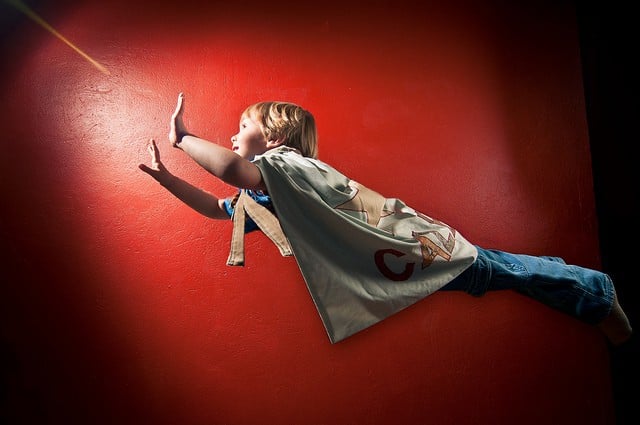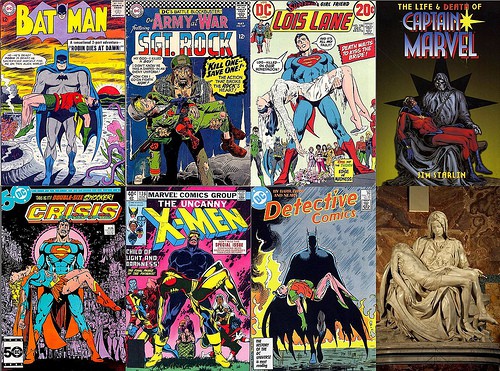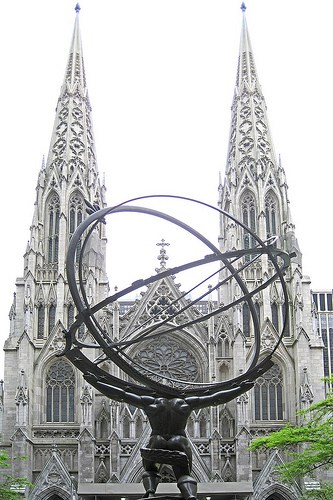Once upon a time, I was Superman. I was four years old, and needed only a safety pin and a ratty piece of red cloth to transform from a mild-mannered-toddler into a boy of steel. I still remember my friend Ming and myself running though his house with towels fastened around our necks. I was Superman, but Ming was a genius.
Ming’s white terrycloth towel-cape was fastened in place by a smiling blue-whale pin. While I could fly, shoot heat beams out of my eyes, and blow frost, Cetacean-Man Ming had the powers of both Leviathan and Juggernaut. He was master of the ocean with the strength to upend aircraft carriers while rampaging through the living room shooting water streams at typhoon-like velocity from his mouth, much to the dismay of his arch-nemesis: Mom.
That was Ming: imaginative and mischievous, capable of turning the most mundane of circumstances into a havoc-wreaking experience of a lifetime. In our imaginations, we could try on various roles and characters, and would think of new ways to use our surroundings and explore the boundaries of right and wrong. We drove his mom crazy and we would get punished. But we loved it because we both were and were not the characters that we represented, and we could do anything.
***
We probably all played superheroes as kids, or if not superheroes, we played other characters – adventurers, private eyes, crime-fighters, and even outlaws. Superheroes, though, that was where it was at. It was comic books and the heroes that filled their pages that took up most of my imaginative space. I spent hours reading the adventures of G.I. Joe, Spider-Man, X-Men, and various spin offs (What If, Secret Wars, etc.).
I know what you are thinking: NERD! For many of us, though, pulp media filled our young lives with characters that drew us in and let us try on personas. As kids, we are born to make believe – to attempt to be something we are not and feel what it is like to take on the shape of symbolic characters. As we get older, we might let go of certain heroes and latch on to others: rock stars, political leaders, business gurus; they all have some pull. Still, in the corners of our minds, we remember the joy of comic books.
In some ways we never stop imagining ourselves as these characters. It is becoming surprisingly common to find adults playing with the idea of Superheroes. Don’t believe me? What was your Halloween like? Did you dress up ? I’d be willing to bet Ming’s smiling blue whale pin that Batman made an appearance at your costume party.
Or how about the San Diego Comic Con? This experience is akin to a pilgrimage for comic-dom’s “true believers.” Last year, there were over 130,000 people in attendance. Over the course of a weekend, grown adults (and some kids) dressed in costumes and paid lots of money and stood in lines longer than a Springsteen concert to celebrate comics.1
Maybe conventions are not that big a deal. How about real-life superheroes? Yes, I just said that and no I do not mean a PSA for your dad, or mom, or whatever. There are people who actually dress up and look for ways to fight crime and do good deeds.
The point here is that it does not take much searching to realize that we are still seeking to be entertained and inspired by comic book characters. By the 2000’s, comic-book movies had practically become a genre in its own right. An extraordinary number of titles have been released in the last fifteen years,2 and many more are slated for release very soon. They have generated billions of dollars. Billions.3 It is pretty obvious that we like these movies. Enough people have written guesses about why we like them to fill a few Google search pages. So I am not going to comment on that. What I am going to say is this: Superheroes have taken the place of mythological gods in our collective imagination.
I remember first coming across tales of Perseus, Apollo, Aphrodite, Athena and the entire pantheon. It was not until I became an adult that I realized that the mythological pantheon was an attempt by some cultures to make sense of their worlds through stories. These gods were intended to give reasons for why things were as they were – why does the sun rise? why do seasons change? – as well as offer a sense of that culture’s virtues like courage and love.
By the time they were adults, these stories had fused themselves to their subconscious and become second-nature. When I heard these stories as a kid, I thought they were kind of neat, but they didn’t grab me and inspire me to pin a towel around my neck. Batman, Superman, Spiderman, Flash, Wolverine – that’s where the action was. That’s what got me going.
***
Thinking about superheroes now, though, all I can think of is that we are asking them to do the things for us that they never did when we were kids. Take Batman – I recently read a great article on Beams and Struts4 about the nature of the Dark Knight entitled “Batman Died for Our Sins”. The author explores the destruction of self, the dangerous tendencies towards evil and darkness, the acceptance of our shadow sides, and the ultimate light of self-awareness that allows for the conscious integration of our human condition. Batman? Yes, Batman. The same guy who jumped around in garish tights and whose fists pounded out POWs and ZOKs. The Caped Crusader has come a long way.
He’s not the only one, though. We see the stories of different superheroes dealing with some pretty heavy duty existential questions. Spider-Man, Wolverine, X-Men, all of them: common human plights blown into epic proportions. It is not a matter of finding ourselves reflected in their lives the way we do in other dramas. I do not know anyone who has caused the death of their own “uncle Ben”. Likewise, I cannot remember a time when I felt as though I was trapped in an underwater tank in some arctic fortress having adamantium laced into my skeleton only to escape into the wilderness to live on memories of a lost love and the desire to seek revenge with the help of an animal like instinct and retractable razor sharp claws. Instead, we watch the drama because it resonates with us an almost mythic level.
Superheroes are the perfect representation of secular saints… gods of a new era. In our need to find a way to celebrate something in common, we turn to superheroes. Rather than taking us to Mount Olympus, comic books place the heroes in a specifically post-modern context. It’s a world where unified truth, trust in institutions, and the will to fight against evil as we find it in our world are all futile. Superheroes offer us a way out. They offer us perspective. They help us hope in the power of one person to do good. They give us ways to reimagine ourselves. They show us a way towards a happy ending, and they let us have fun doing it.
In our comic-book heroes, we are witnessing the birth of a new pantheon of characters that seek to embody values in a secular world. It’s not necessarily a bad thing, but it is worth noting because the goods they represent (for example, the teamwork of the Avengers) are counter-balanced by the evil they embrace (retributive violence). It is in this mash-up of specifically twenty-first century values with archetypal characters that I think we find ourselves trying to evangelize. Like Paul in the Areopagus, we are being asked to find a way to coopt the best and usurp the worst values of these new gods and direct them in a new way that inspires the imagination towards Christ.
Comic book superheroes are not the enemy here. After all, like all things post-modern, they do not really stand for anything. Further, I don’t want to make Jesus into a superhero because he isn’t one. If would be silly to think that we have to “combat” these secular gods or make Jesus like a superhero (or worse, it would make Jesus seem silly). Instead, we are trying to find a way to speak of Christ in the language of the time. These characters are saying something, we are just not sure what it is. Our new pantheon can serve as a sort of lens through which we can view ourselves and ask new questions: what are these characters telling us about the ways that we imagine ourselves to be? What do these characters continue to tell us about the ways that we desire to use our surroundings? And even more, is there a place for Christ present here?
— — — — —
- It has been going on for forty years and its still growing. It is not the only comic convention in the country, either. There are others that are almost as big and those are growing in popularity too. ↩
- Let’s say that there are three basic categories of comic book movies. These categories are divided here by my highly nuanced and yet very non-scientific perception of public awareness (read: personal opinion). 1. The well known: The Avengers (plus Captain America, Hulk, Iron Man, Thor), Batman, Fantastic Four, Green Lantern, X-Men (and Wolverine), Spiderman, Superman; 2. The less well-known: 300, The Crow, Daredevil, Kick-Ass, Men In Black, Scott Pilgrim vs. The World, Sin City, Tank Girl, V for Vendetta, Watchmen; and 3. The “I had no idea”: A History of Violence, Blade, Ghost World, Hellboy, Road to Perdition, Surrogates, Wanted. I know that there are other movies that could be on this list. I just think that each of these has something going for it that makes it worth taking a look at. While this will probably agitate some of you fan-boy/girls our there, kindly stick your comments in your hat…or write your own post. ↩
- Check it out http://boxofficemojo.com/genres/chart/?id=comicbookadaptation.htm ↩
- Seriously, if you are looking for some interesting and insightful articles on the nature of the Superhero and human nature, there are some articles that are worth reading here. ↩





